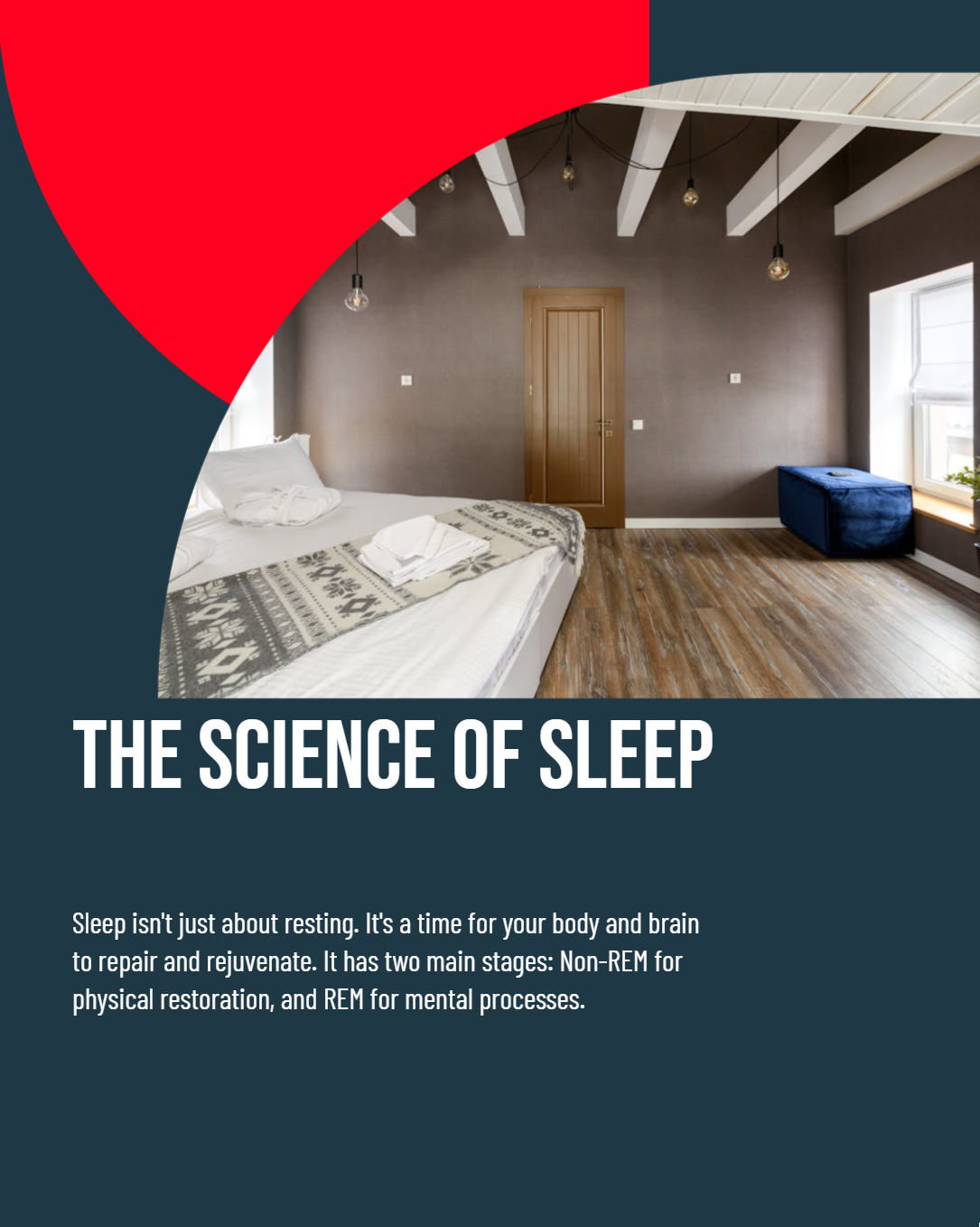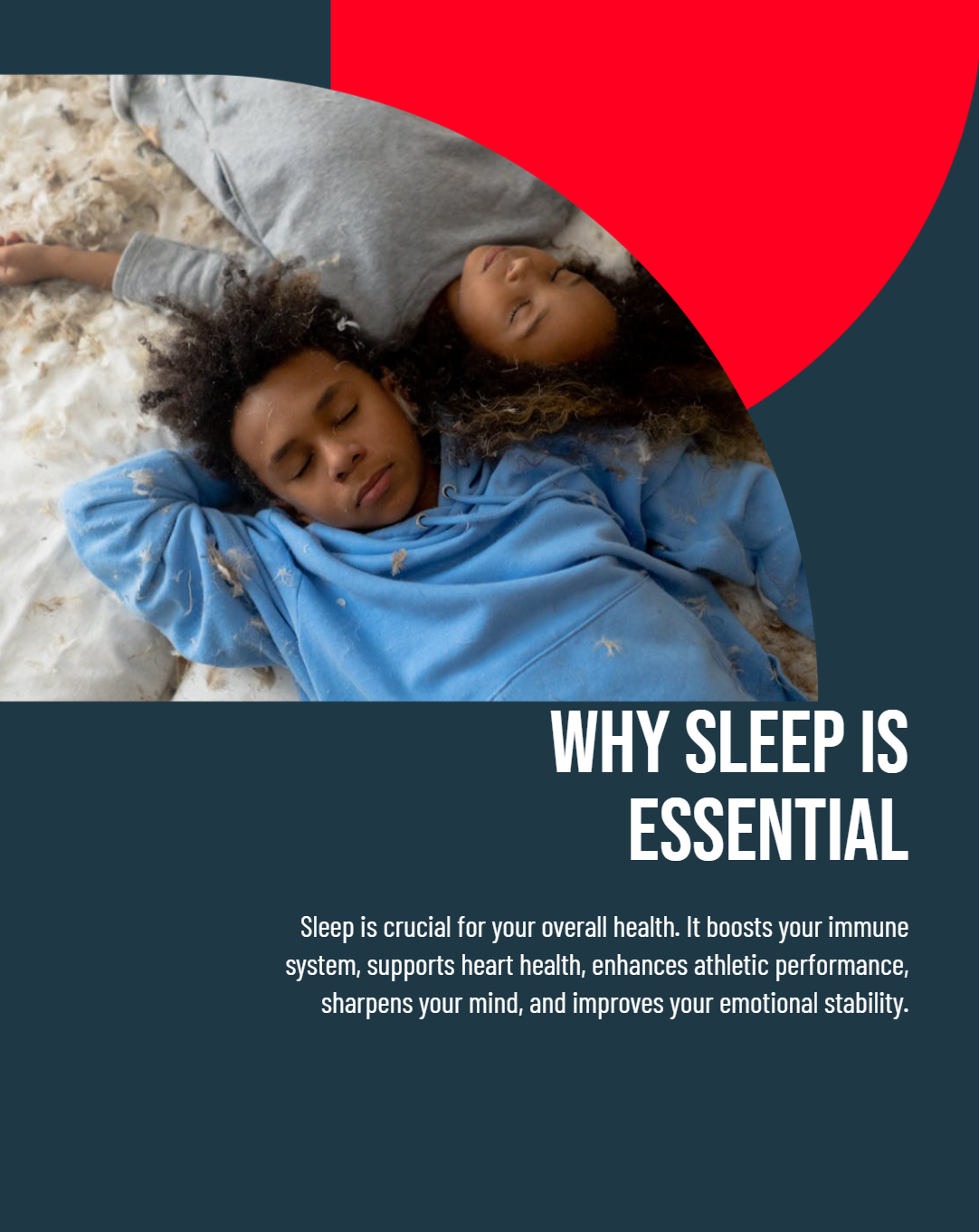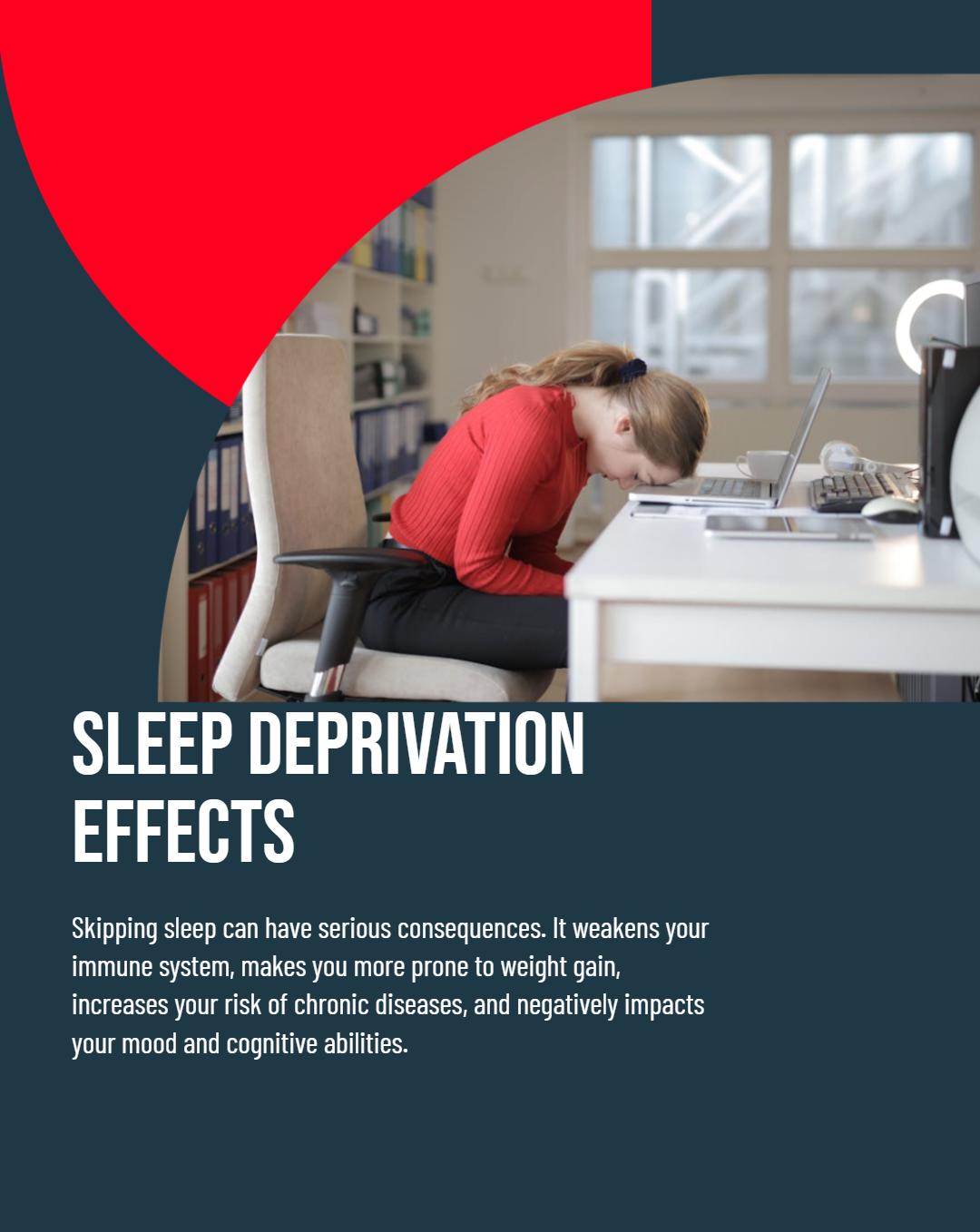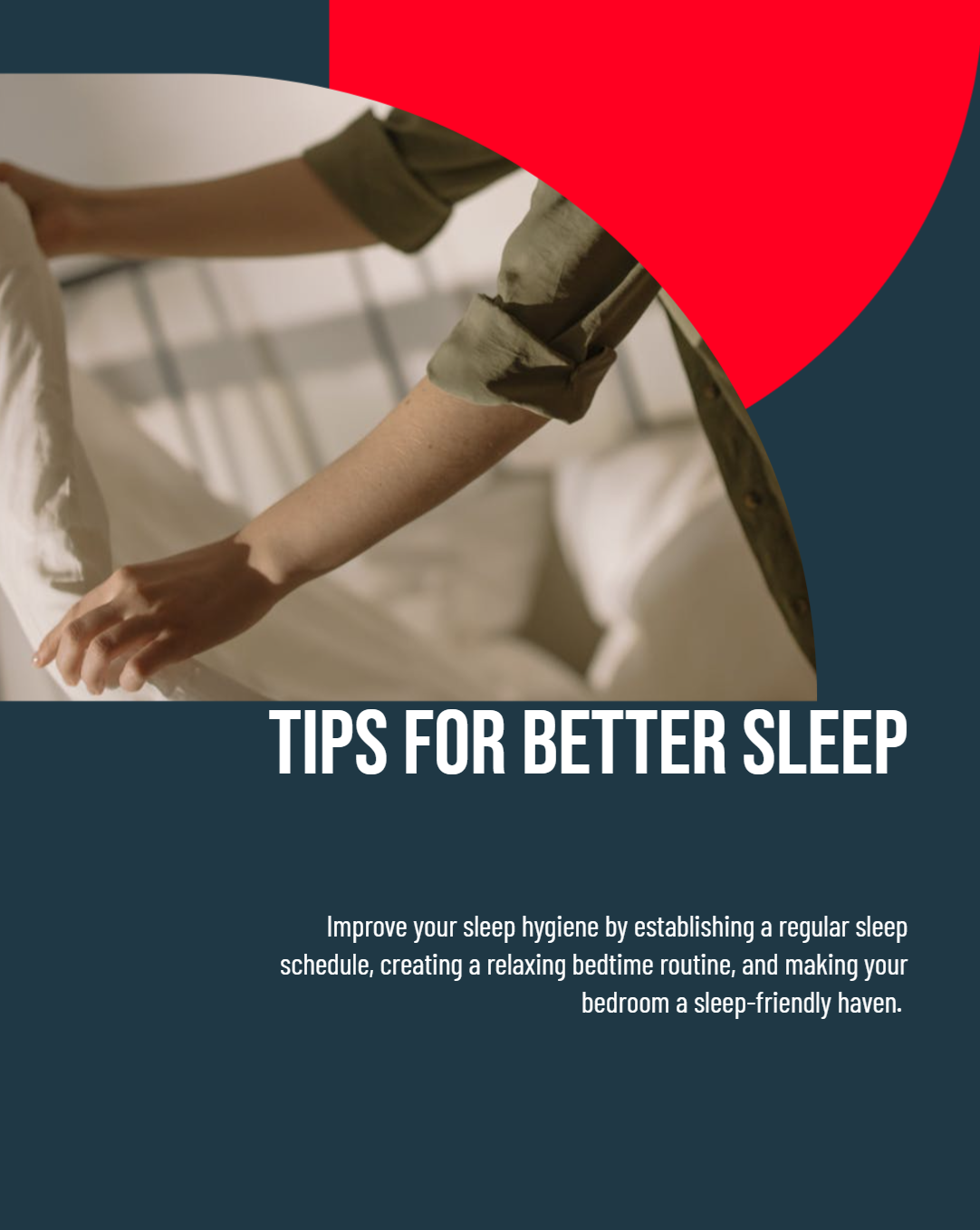Sleep is one of the most critical yet often overlooked aspects of our overall health and well-being. With the fast-paced nature of modern life, many of us sacrifice sleep to meet deadlines, attend events, or enjoy late-night entertainment. However, insufficient sleep can negatively impact our physical, mental, and emotional health. In this article, we’ll explore why getting enough sleep is crucial for feeling your best and how it influences various aspects of life.

Sleep is far from a passive state. It's a time for the body and mind to repair, restore, and rejuvenate. Sleep consists of two primary stages:
During these cycles, our bodies release hormones, repair tissues, and process the information we’ve gathered throughout the day.
Our sleep patterns are governed by the circadian rhythm, an internal clock that regulates when we feel alert or sleepy. Disrupting this rhythm—through irregular schedules, late-night screen exposure, or caffeine—can affect sleep quality and overall health.

Boosts Immune System
Sleep helps the body produce infection-fighting cells and antibodies. Without enough rest, the immune system weakens, making us more susceptible to illnesses.
Supports Heart Health
During sleep, the body regulates blood pressure and reduces inflammation, lowering the risk of heart diseases.
Enhances Athletic Performance
Athletes who prioritize sleep experience improved endurance, faster reaction times, and reduced risk of injury. This is because sleep facilitates muscle repair and energy restoration.
Enhances Cognitive Function
Sleep strengthens the brain's ability to focus, solve problems, and retain memories. Poor sleep can lead to brain fog and difficulty concentrating.
Improves Emotional Stability
Lack of sleep is linked to mood swings, anxiety, and even depression. Sufficient rest helps regulate emotions and improve resilience to stress.


Going to bed and waking up at the same time daily helps regulate your circadian rhythm.
Activities like yoga, meditation, or deep-breathing exercises can help signal your body that it’s time to wind down.
Insomnia is the inability to fall or stay asleep. It can be triggered by stress, anxiety, or lifestyle factors.
This condition causes interrupted breathing during sleep, leading to poor-quality rest and increased health risks.
RLS causes discomfort in the legs, often disrupting sleep. Regular exercise and proper hydration can help manage symptoms.
The amount of sleep you need depends on your age and activity level. Here’s a general guideline:
| AGE GROUP | RECOMMENDED SLEEP DURATION |
|---|---|
| Newborns | 14-17 hours |
| Children (6-13) | 9-11 hours |
| Teenagers | 8-10 hours |
| Adults | 7-9 hours |
| Seniors (+65) | 7-8 hours |
Short naps, typically between 10-20 minutes, can boost alertness and energy without interfering with nighttime sleep. Longer naps, however, may lead to grogginess and disrupt your circadian rhythm.
Getting enough sleep directly affects productivity. Rested individuals have sharper focus, better decision-making abilities, and enhanced creativity. On the other hand, sleep-deprived employees cost companies billions in lost productivity annually.
Sleep is not a luxury—it’s a fundamental pillar of good health. Prioritizing quality rest can improve every aspect of life, from physical performance to mental clarity and emotional stability. By adopting healthy sleep habits and understanding its importance, you can unlock your full potential and truly feel your best.
Signs include constant fatigue, difficulty concentrating, mood swings, and frequent illness.
Yes, oversleeping can be a symptom of underlying health issues like depression or sleep disorders and may lead to chronic fatigue.
Stick to a consistent sleep schedule, use blackout curtains, and minimize caffeine intake to adjust to your shift.
Regular exercise improves sleep quality, but avoid intense workouts close to bedtime as they can increase alertness.
Sleep trackers provide a general idea of your sleep patterns, but they may not be 100% accurate for diagnosing sleep disorders.
 14.01.2025
14.01.2025